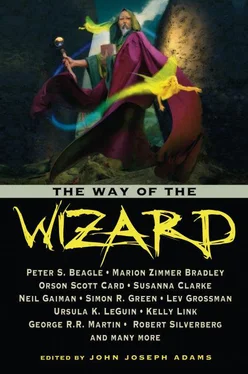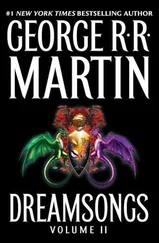And the years passed, like silver drops falling from a leaking tap.
In the world we call the real world, Hannah is seventeen years old. She’s not a wizard; she is a musician. She knows that music holds magic, that songs can be like spells.
In the safety of her bedroom, she plays the electric keyboard and practices the drums. She begged her mother for those drums for months and months. Her mother still disapproves. The drums are pushing a dangerous line. Percussion can lead to rock music, and rock music is the devil’s soundtrack.
At church youth group meetings and school worship sessions, Hannah plays and sings the familiar songs that everyone knows. They are simple, but powerful. In the language of spells they are the tools of beginners, easy to master and simple to recite, yet still surprising in their strength. Hannah plays and sings them with all her soul; she loses herself in that music.
Though she doesn’t know it, the depth of that emotion is visible to everyone. Her love shines on her face. Her desire radiates from her voice. Her friends feel more, and when they raise their hands to the Lord, the movement comes from a sense of inspiration rather than duty. They can’t tell if it’s her spirituality they find beautiful, or her beauty they find spiritual. It doesn’t matter.
Whatever it was, it attracted Peter, the youth minister. He put her on stage when she was just fourteen. He helped her find her voice.
She composes her own songs too, faltering through false notes. Those songs are pleas and prayers set to music. Passion and frustration inflect each note she plays and drip from each word she sings. Carefully she guards against the intrusion of rock music, and suppresses the relentless attacks of the demons of despair and rage.
Hannah lives in a ranch-style house in a middle class suburb. She lives with her mother and father, and her sister, who is thirteen years old. Hannah’s mother is a homemaker. Hannah’s father is a certified public accountant. Hannah’s sister is named Frances, Franny for short. Though Hannah loves her sister very much, she’s the first to admit that Franny can be extremely annoying: stubborn, self-involved, somewhat babyish. Sometimes they scrap like cats and dogs, out of the earshot of their mother, who would tell them that quarreling isn’t Christlike. Blessed are the peacemakers, after all. Maybe that’s true, but did Christ ever contend with a clingy younger sibling sneaking into his bedroom to “borrow” his clothing, read his diary or unearth contraband?
(Hannah’s contraband: three rock music CDs, a black eyeliner pencil, and a story about a wizard.)
The wizard Hanna D’Forrest’s world is shattered one morning in late spring. This is the day the first girl appears at the edge of the forest: naked and hungry, drained of will. She’s forgotten her name.
The wizard cares for the girl as the witch cared for her. She nurses the girl back to strength and health, but she can’t help the girl find her memories.
Then another girl stumbles from the forest in the same pathetic condition.
The wizard cares for her, too. When the girls are strong enough, she brings them to the nearest farmhouse, where they will be safe until their sisters come looking for them.
She needs to be alone. She has work to do.
Once home, she goes to her mirror.
What is this mirror, this wizard’s tool?
The mirror sees the past. It sees the future. It sees cities and worlds far beyond. All of them are somehow contained in the wizard. The mirror sees her, too. She cannot stare into it without learning something she does not want to know. She cannot stare into it without revealing something she does not want to show.
It is not an easy tool to use.
She keeps it wrapped in fold after fold of cloth, nestled in a chest, locked in a closet. She sleeps with the key around her neck.
Now, she approaches the mirror with dread, knowing a threat is gathering strength and that she must use her mirror to understand this danger’s shape.
She gathers her courage. Though the mirror is always dangerous, it’s doubly dangerous to those who are afraid.
Your weapon is only your weapon if you’re strong enough to hold it.
She banishes her fear…
… and faces the mirror.
And the mirror shows her a dark creature, penetrating their boundaries, forcing itself into their world, whether by accident, choice, or fate. The dark creature cannot be seen; it exists only through the havoc it creates.
Using the same malicious agility by which it found its way into their world, it flows through windows and beneath the cracks of doors. It comes to girls as they sleep and gives them nightmares. It leads them like sleepwalkers into the forest, and then it leaves them stranded.
An incubus.
Troubled, the wizard Hanna D’Forrest travels to the palace to tell the princess what she’s seen.
How long has it been since she last walked the streets of Perta Perdida? Time means nothing in fairy tales; continually evolving, the city feels new to her each time.
The streets are paved in gold, lined by trees like turquoise cotton candy. Mechanical butterflies cruise overhead, carrying laughing riders. She’s ridden a butterfly before — stroked its iridescent wings, worked its mechanical gears. She’s seen the city from dizzying heights.
Today, she is content to walk, revisiting her city and her sisters.
She watches them as they walk in twos and threes, pausing at shop windows. The glass fronts display scones and tarts, buttons and boots, polished lamps and brass keys. Girls run barefoot through the fountain, dresses clinging to their knees.
She climbs toward the city center. Colorful houses with tiled roofs sprinkle the hillside like candy. Gardens hang from windows and flowers bloom around the doors.
She reaches the palace grounds, passing beneath a bay of spiders weaving tensile webs like copper wire. Metallic tendrils caress her as she passes, simply wanting to know her. She walks a wide-open lane, lined with fragrant orange trees. Robots guard the way, their eyes enigmatic emerald, their fingers grasping ancient keys; they let her pass.
Finally she comes to the heart of the palace, where the princess lives.
The princess wears her hair free and wild, circled only by a silver band. Her skin is smooth as milk chocolate, her smile as sweet. Her bare arms are muscular, circled with metal bracelets; her simple dress swirls to the floor. She is barefoot.
The princess and the wizard take one another in, accepting what has changed and savoring what has not.
“You know why I’m here,” says the wizard.
“Yes. I know.”
The wizard describes the chaos she saw in the mirror: the attacks of the incubus and the summer of suffering.
The princess asks her questions, contemplates the consequences.
Finally she says: “My warriors can do nothing against a threat like this one. It is up to you.”
“Yes. I know,” she says. She knows enough to be afraid.
The creaking bus is filled with the smells of exhaust and Doritos, and the fruity-floral scents of teenage girls. Hannah sits by the window and watches the miles as the sun rises over the mountains. CD player in her lap, headphones in her ears: she’s as faraway as she can make herself.
They’re heading to a daylong Bible retreat.
Hannah’s sister Franny sits across the aisle with her best friend Krista. Their furtive conversation is drowned by the rumbling of the bus and the aural onslaught of Hannah’s private music. They bend their heads together, whispering and giggling.
Peter sits four seats up, talking with two guys across the aisle.
He became their youth minister four years ago. He’d been twenty-five then, idealistic and charismatic. Hannah’s mother campaigned hard to get him the position. When he had it, she invited him to dinner. She baked her delicious chicken potpie, and they all listened as Peter told them stories about the year he’d spent volunteering in Guatemala. His eyes shone as he described building a house for a poor family, or playing ball in the dirt street with a bunch of rowdy boys.
Читать дальше












